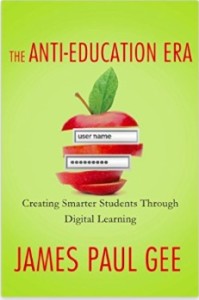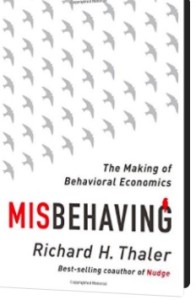 James Paul Gee’s The Anti-Education Era: Creating Smarter Students through Digital Learning includes a wonderfully insightful and entertaining attack on human intelligence. In reflecting on this aspect of the book for my class at Michigan State, I find that I’m not as cynical as Gee about ways humans make sense of the world.
James Paul Gee’s The Anti-Education Era: Creating Smarter Students through Digital Learning includes a wonderfully insightful and entertaining attack on human intelligence. In reflecting on this aspect of the book for my class at Michigan State, I find that I’m not as cynical as Gee about ways humans make sense of the world. 
Gee makes a compelling case that humans have caused massive global problems that we are unable to address because we’re stupid (his term, too numerous to cite). He argues that faults in human memory, decision making, institutions, meaning-making and motivation often lead to terrible outcomes for complex global problems. Indeed, it’s hard to argue otherwise as we face a world (which we are rapidly melting) with record (and rising) inequality, instability, and violence. My optimism isn’t boundless, but I’m not so quick to condemn our human faults. Given knowledge of how we sapiens act en masse, might we not turn our faults to our advantage in creating momentum towards solutions?
I’m not all optimism. I wonder if human stupidity only explains part of the complex problems we face. I’ve written about emergent change in systems before. Great social and economic forces may exist beyond the purview of human agency.  Even if countless, individually smart, human actions accrued to create a massive problem, I’m not convinced that human agency can un-create it, no matter how smart we are. Check out this book for a take on how economic systems dictate seemingly irrational human behavior:
Even if countless, individually smart, human actions accrued to create a massive problem, I’m not convinced that human agency can un-create it, no matter how smart we are. Check out this book for a take on how economic systems dictate seemingly irrational human behavior:
Here’s a link to my essay for CEP812 on reflecting on Gee’s work.